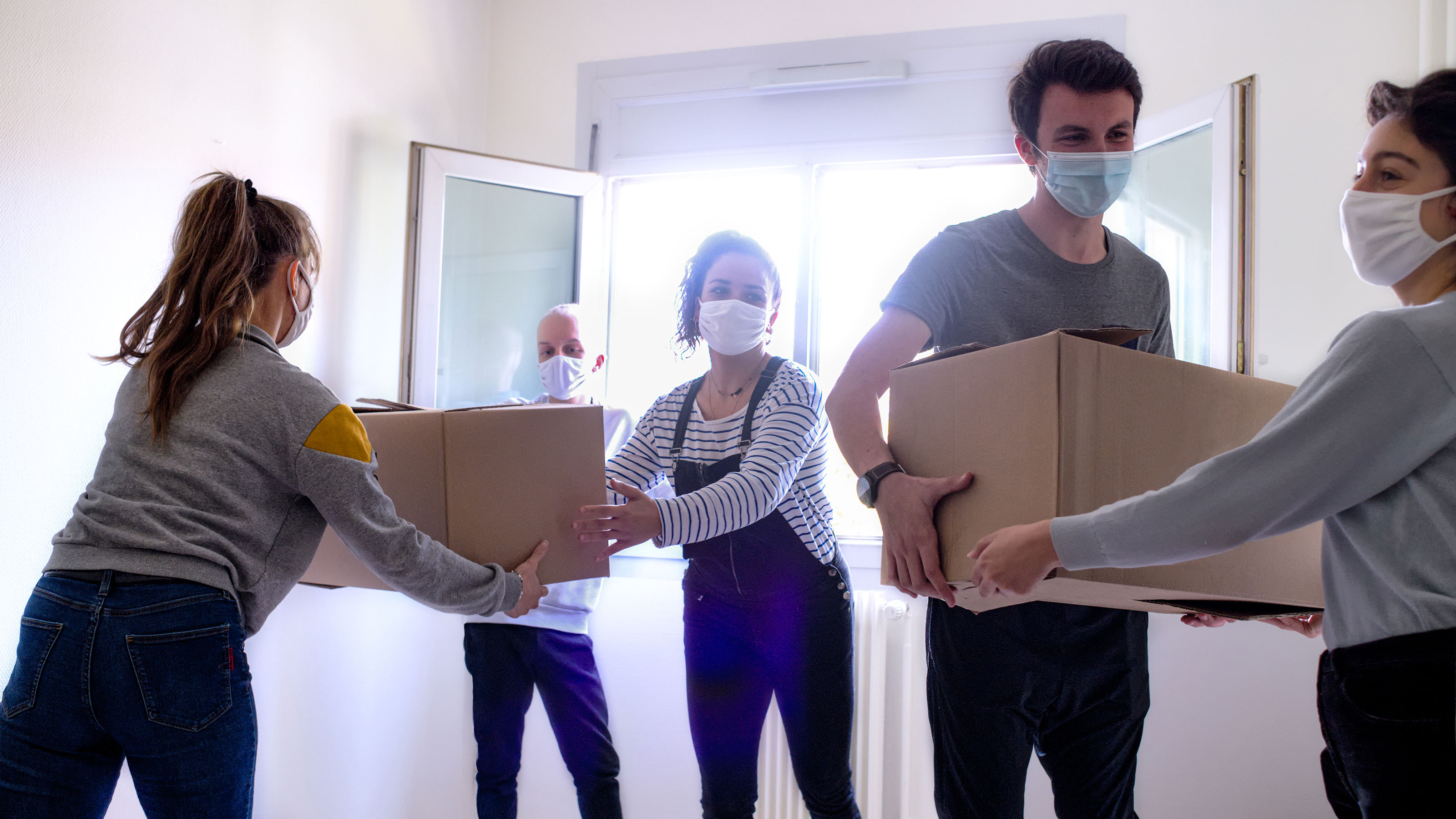Is Your Storage Unit Properly Protected?
Make sure you have enough insurance coverage for your belongings.

Profit and prosper with the best of Kiplinger's advice on investing, taxes, retirement, personal finance and much more. Delivered daily. Enter your email in the box and click Sign Me Up.
You are now subscribed
Your newsletter sign-up was successful
Want to add more newsletters?

Delivered daily
Kiplinger Today
Profit and prosper with the best of Kiplinger's advice on investing, taxes, retirement, personal finance and much more delivered daily. Smart money moves start here.

Sent five days a week
Kiplinger A Step Ahead
Get practical help to make better financial decisions in your everyday life, from spending to savings on top deals.

Delivered daily
Kiplinger Closing Bell
Get today's biggest financial and investing headlines delivered to your inbox every day the U.S. stock market is open.

Sent twice a week
Kiplinger Adviser Intel
Financial pros across the country share best practices and fresh tactics to preserve and grow your wealth.

Delivered weekly
Kiplinger Tax Tips
Trim your federal and state tax bills with practical tax-planning and tax-cutting strategies.

Sent twice a week
Kiplinger Retirement Tips
Your twice-a-week guide to planning and enjoying a financially secure and richly rewarding retirement

Sent bimonthly.
Kiplinger Adviser Angle
Insights for advisers, wealth managers and other financial professionals.

Sent twice a week
Kiplinger Investing Weekly
Your twice-a-week roundup of promising stocks, funds, companies and industries you should consider, ones you should avoid, and why.

Sent weekly for six weeks
Kiplinger Invest for Retirement
Your step-by-step six-part series on how to invest for retirement, from devising a successful strategy to exactly which investments to choose.
I was always thought that if you had to rent a storage unit, you had too much stuff ... that is, until I rented one myself. When my grandmother moved from a two-bedroom apartment to a one-bedroom apartment in a retirement community, she gave me the furniture from one of the bedrooms because it had been in my father's childhood bedroom. I didn't have space in my house for it. But I didn't want to sell it because my father died several years ago and I had very few items that once were his. So I rented a storage unit.
A few months later I moved into a house with more bedrooms, so I was able to use the furniture that I had placed in storage. The rental only cost me about $30 a month, so I didn't regret spending the money to hang on to something that had sentimental value.
Storage units have dramatically grown in popularity over the past several years. I'm not just talking about their popularity as reality TV fodder on A&E's "Storage Wars," where the contents of abandoned units are sold at auction. The number of U.S. households that rent self-storage units has actually increased 65% in the last 15 years, according to the Self Storage Association. One in ten households currently rents a storage unit.
From just $107.88 $24.99 for Kiplinger Personal Finance
Become a smarter, better informed investor. Subscribe from just $107.88 $24.99, plus get up to 4 Special Issues

Sign up for Kiplinger’s Free Newsletters
Profit and prosper with the best of expert advice on investing, taxes, retirement, personal finance and more - straight to your e-mail.
Profit and prosper with the best of expert advice - straight to your e-mail.
If you're among the growing number of people renting a storage unit, you need to make sure your belongings are protected. That means choosing the right facility and getting the proper insurance coverage. The Insurance Information Institute offer these tips:
-- Look for a secure facility. It should be surrounded by a fence and have coded security pads to enter the facility and video surveillance cameras. Ideally, there should be cameras throughout the facility, not just at the entrance.
-- Make sure it is clean and well-maintained. If it's not, that means it might not be monitored for bugs and rodents, either. Ask to see proof that the facility has a permanent pest extermination contract in place.
-- Find out what losses are covered. Before signing a rental agreement, find out what losses the storage facility will cover and whether you need supplemental insurance. Most storage facilities require you to have insurance for the full replacement cost of the contents of a unit, according to III. If you already have homeowners or renters insurance, check with your insurer to see if your policy provides off-premises protection for property. Most standard policies do, and this coverage typically provides protection in instances of theft, fire, tornadoes and certain other disasters. If you don't have a homeowners or renter policy, make sure you select a storage company that offers insurance.
-- Consider units that are climate controlled. If you don't want to risk mold growing on your belongings choose a facility with climate-controlled units. Homeowners and renters policies, as well as insurance offered by storage companies, won't cover damage caused by mold, vermin and poor maintenance, or floods and earthquakes. Based on my research when I was shopping for a storage unit, these climate-controlled units cost two to three times as much. But the added expense might be worth it if you plan on leaving your belongings in a unit for a long period of time and don't want them to be damaged by extreme temperatures.
-- You may need to purchase additional coverage. Some insurers limit coverage for off-premises possessions to 10% of the overall amount of homeowners insurance a policyholder has. And some have dollar restrictions on insurance payouts for theft of items such as art, antiques, jewelry and furs. So you might need to add a floater or endorsement to fully cover these items. Have your items appraised so that you get the proper amount of coverage.
--Take inventory of all the items in your storage unit. You should make a list and take pictures (or a video) of all the items in your unit to substantiate any losses and speed up the claims process. III's free Know Your Stuff software can help you do this.
Profit and prosper with the best of Kiplinger's advice on investing, taxes, retirement, personal finance and much more. Delivered daily. Enter your email in the box and click Sign Me Up.

Award-winning journalist, speaker, family finance expert, and author of Mom and Dad, We Need to Talk.
Cameron Huddleston wrote the daily "Kip Tips" column for Kiplinger.com. She joined Kiplinger in 2001 after graduating from American University with an MA in economic journalism.
-
 How Much It Costs to Host a Super Bowl Party in 2026
How Much It Costs to Host a Super Bowl Party in 2026Hosting a Super Bowl party in 2026 could cost you. Here's a breakdown of food, drink and entertainment costs — plus ways to save.
-
 3 Reasons to Use a 5-Year CD As You Approach Retirement
3 Reasons to Use a 5-Year CD As You Approach RetirementA five-year CD can help you reach other milestones as you approach retirement.
-
 Your Adult Kids Are Doing Fine. Is It Time To Spend Some of Their Inheritance?
Your Adult Kids Are Doing Fine. Is It Time To Spend Some of Their Inheritance?If your kids are successful, do they need an inheritance? Ask yourself these four questions before passing down another dollar.
-
 How to Search For Foreclosures Near You: Best Websites for Listings
How to Search For Foreclosures Near You: Best Websites for ListingsMaking Your Money Last Searching for a foreclosed home? These top-rated foreclosure websites — including free, paid and government options — can help you find listings near you.
-
 Retirees, A Healthy Condo Has a Flush Reserve Fund
Retirees, A Healthy Condo Has a Flush Reserve FundSmart Buying Reserve funds for a third of homeowner and condo associations have insufficient cash, experts say. Here are some cautionary steps you should take.
-
 Negotiate a Better Deal
Negotiate a Better DealSmart Buying For a price break on a number of products and services, all you have to do is ask. But first read up on tactics the experts use.
-
 How to Win in a Red-Hot Housing Market
How to Win in a Red-Hot Housing MarketBecoming a Homeowner Whether you’re a buyer or a seller, these strategies will help you get the best deal.
-
 Keep Moving Costs in Check
Keep Moving Costs in CheckMaking Your Money Last If I've learned anything, it's that moving is almost always more costly and time-consuming than I anticipate.
-
 Home Upgrades That Pay Off
Home Upgrades That Pay OffSmart Buying Some affordable renovations recoup most of their cost when you sell.
-
 A Golf Course Community’s Big Variable for Retirees
A Golf Course Community’s Big Variable for RetireesSmart Buying Golf club memberships can often be a separate, and hefty, annual fee at golf communities. Here's some guidance before you tee up your retirement move to live on the links.
-
 Retirees, Make the Most of Your Home Equity
Retirees, Make the Most of Your Home EquityBudgeting A home equity loan or home equity line of credit may be perfect for your retirement finances. But don't delay; a fee increase is coming.